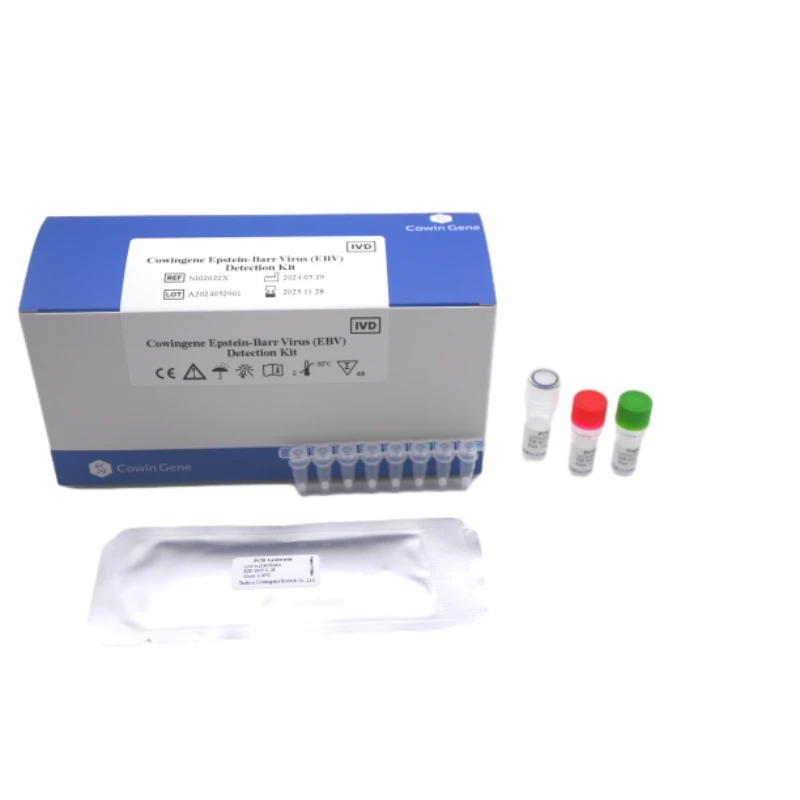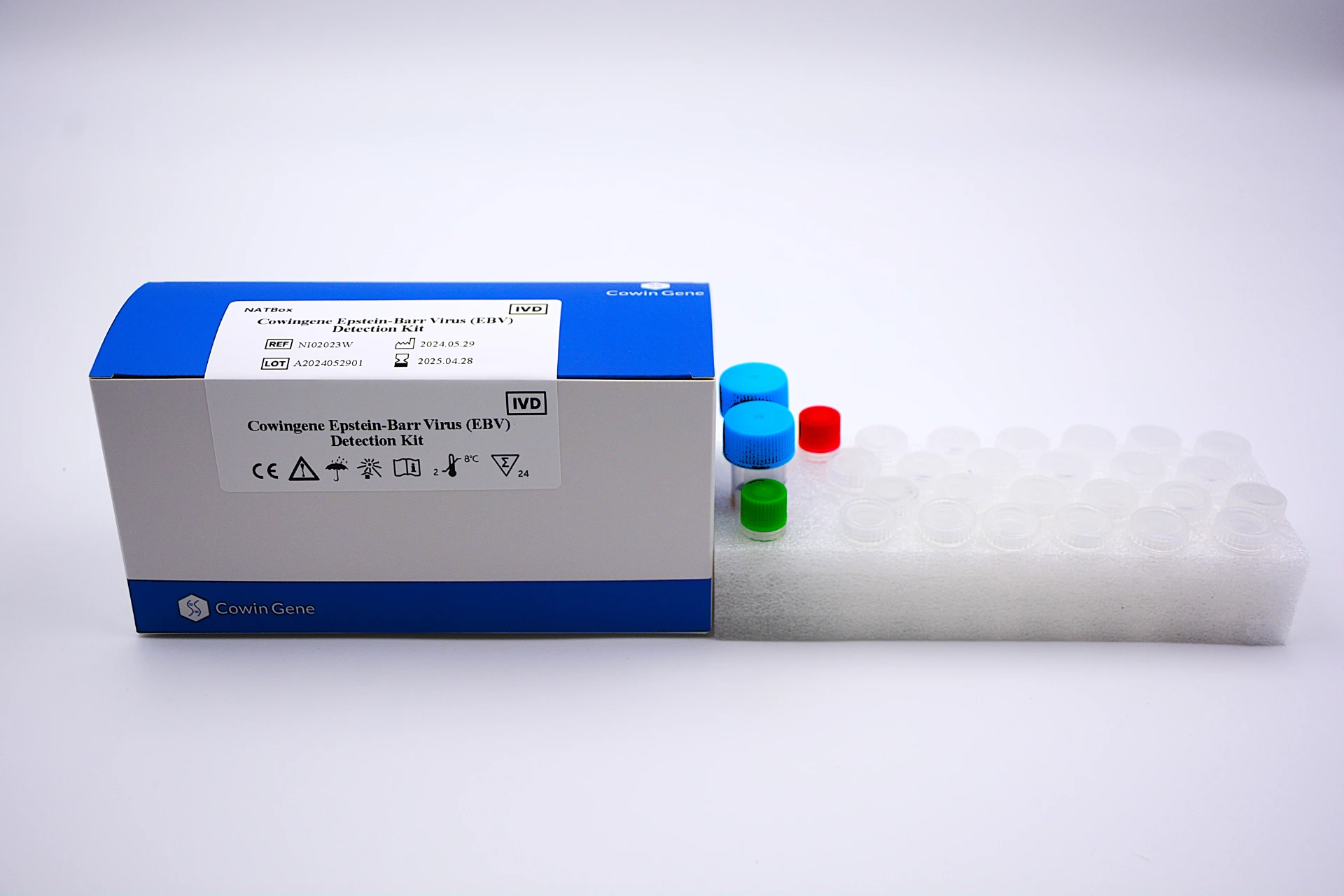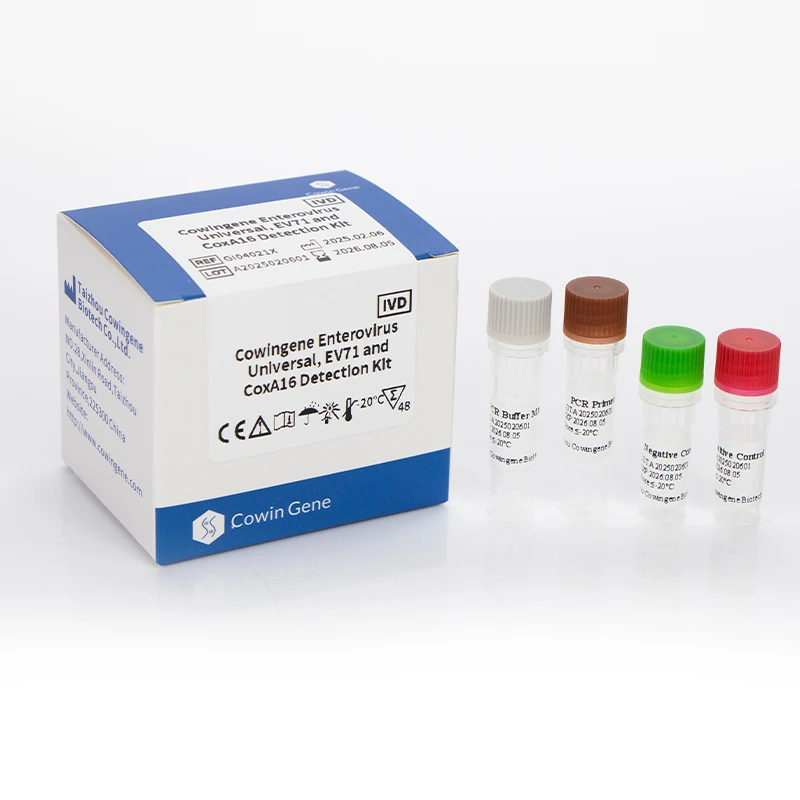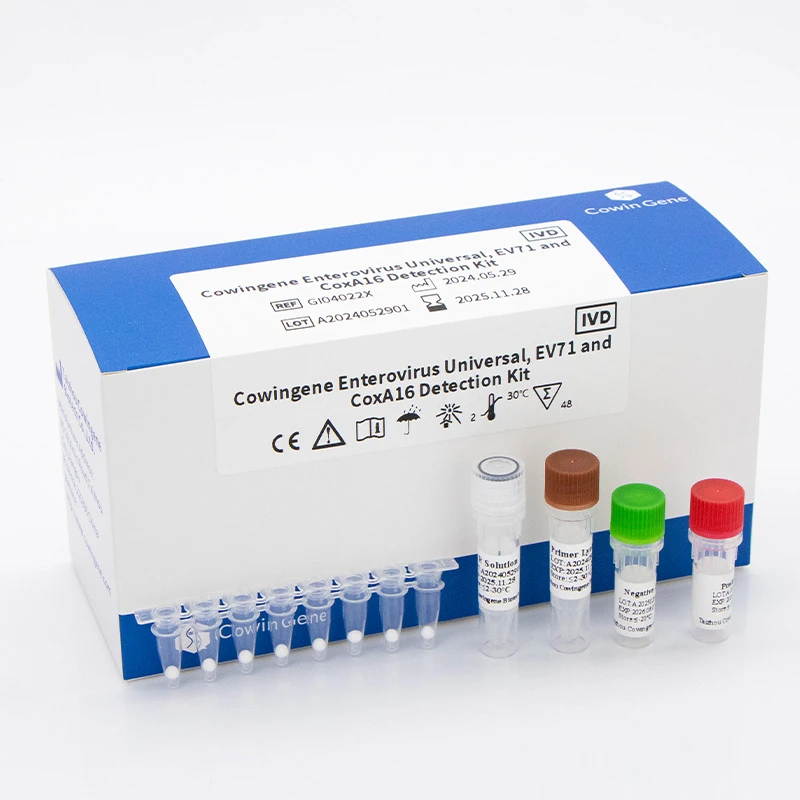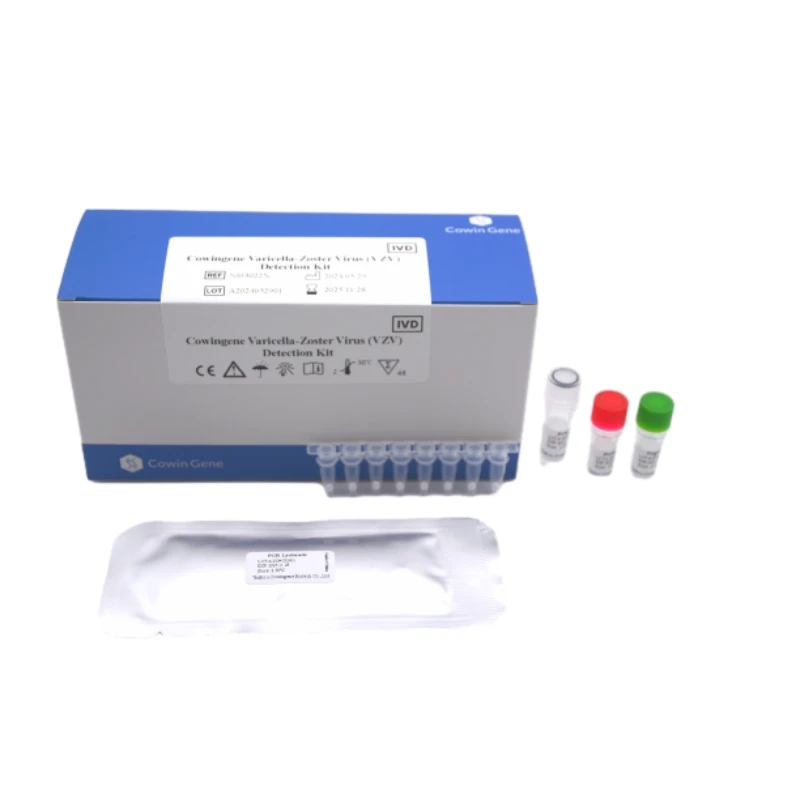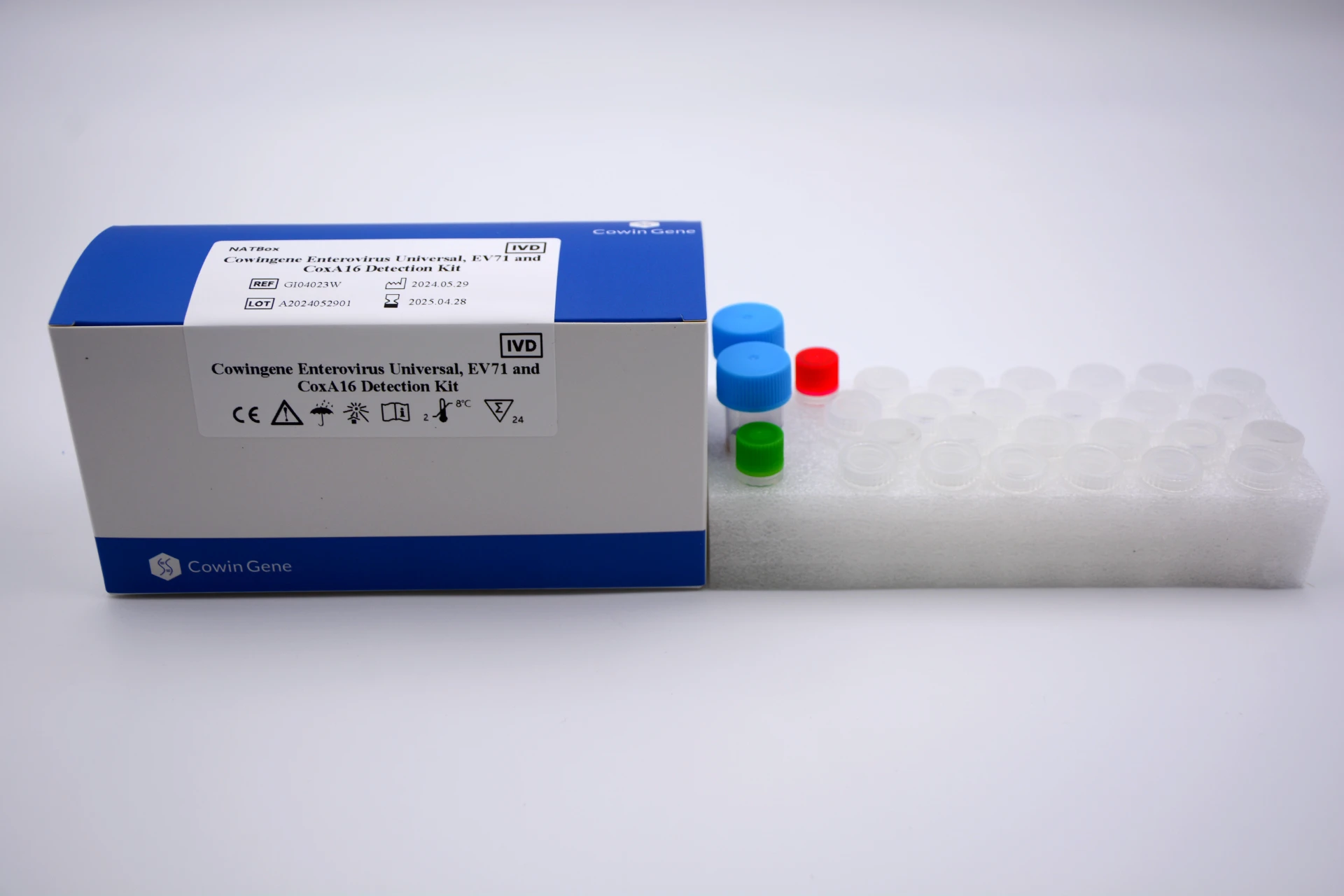Nov . 24, 2025 21:00 Back to list
Understanding Monkeypox Testing PCR – Global Health & Diagnostic Insights
Understanding Monkeypox Testing PCR: A Vital Tool in Global Health
If you’ve followed recent health news, you’ve probably come across the term monkeypox testing PCR. But what exactly is it, and why does it matter so much worldwide? In simple terms, monkeypox testing PCR is a highly accurate method to detect the presence of monkeypox virus DNA in patient samples. This isn't just a lab curiosity—it's a frontline defense in tracking and controlling outbreaks, giving healthcare providers the upper hand in managing this rare but potentially dangerous disease.
The global relevance is clear: with international travel becoming easier and diseases crossing borders faster than ever, reliable testing methods like PCR (Polymerase Chain Reaction) are crucial. They help identify infections early, guide treatment, and prevent broader epidemics. The benefits? Timely diagnosis, minimization of disease spread, and invaluable data for epidemiologists monitoring outbreaks.
Why Monkeypox Testing PCR Matters Globally
The World Health Organization (WHO) has sounded alerts over the past years about increasing monkeypox cases across regions previously unaffected. According to recent UN releases, monkeypox is now seen as a public health challenge beyond endemic zones.
Monkeypox outbreaks emphasize the need for rapid and reliable diagnostic tools. PCR testing, which can detect the virus even in early infection stages, is revolutionizing how health systems respond. Data from ISO-accredited labs worldwide confirm PCR’s superior sensitivity compared to traditional antibody tests.
However, challenges remain: limited lab capacity in low-resource settings and the need for rapid deployment during sudden spikes. This makes developing portable, user-friendly PCR testing kits a priority for global health agencies.
What Is Monkeypox Testing PCR?
At its core, monkeypox testing PCR means amplifying genetic material from the monkeypox virus (usually from a skin lesion or blood sample) to detectable levels using PCR technology. If the virus’s DNA is found, the result is positive.
This method is a gold standard due to its specificity—while other symptoms might mimic chickenpox or smallpox, PCR pinpoints the actual virus. In humanitarian contexts—like refugee camps or outbreak zones—this accuracy can drastically change outcomes.
Key Aspects of Monkeypox Testing PCR
1. Sensitivity and Specificity
PCR tests are incredibly sensitive. They detect even trace amounts of viral DNA, reducing false negatives. Equally important, their specificity means they avoid confusing monkeypox with other poxviruses.
2. Speed and Efficiency
Compared to viral cultures, which can take days, PCR can provide results within hours. Quick turnaround is vital during an outbreak, where every hour counts.
3. Accessibility
Ideally, testing should be near-patient or in decentralized labs. Newer PCR platforms are becoming portable and easier to operate without extensive expertise.
4. Cost Considerations
While still somewhat pricey due to reagent costs and equipment, costs are declining. Bulk purchasing and innovations make it more affordable for mass testing campaigns.
5. Sample Handling and Biosafety
Handling infectious samples requires trained staff and proper biosafety protocols—this is a practical concern especially in limited-resource environments.
Where is Monkeypox Testing PCR Making a Difference?
- Africa: Endemic areas rely on PCR diagnostics to differentiate monkeypox from diseases like chickenpox.
- Europe and North America: Recent outbreaks have spotlighted PCR for early case detection among travelers and at-risk populations.
- Humanitarian Relief: In refugee camps or conflict zones, rapid PCR testing helps contain the virus before it spreads uncontrollably.
- Research Facilities: PCR assays guide vaccine researchers and therapeutic development.
For instance, during the 2022 outbreak, several health agencies deployed mobile PCR labs in urban hotspots, curbing transmission effectively. That’s a big deal when you consider how quickly monkeypox lesions can become contagious, and how fear often drives people away from clinics.
Sample Specifications Table: Typical Monkeypox PCR Test Kit
| Specification | Detail |
|---|---|
| Sample Type | Skin lesion swab, blood |
| Sensitivity | >95% |
| Turnaround Time | 2–4 hours |
| Equipment Needed | Real-time PCR thermal cycler |
| Cost Per Test | ~$25–$50 (varies by volume) |
Comparing Top Vendors for Monkeypox Testing PCR Kits
| Vendor | Accuracy | Turnaround Time | Cost Per Test | Special Features |
|---|---|---|---|---|
| GeneDx Diagnostics | >98% | 3 hours | $45 | Multiplex targeting |
| PoxLabs Inc. | 95% | 2.5 hours | $30 | Portable PCR device |
| ViraScan Technologies | 96% | 4 hours | $50 | Cloud reporting integration |
The Tangible and Emotional Advantages of Accurate Monkeypox Testing PCR
Sure, the logic is straightforward—accurate results lead to better treatment and less spread. But there’s an emotional component, too. Imagine the relief when patients get clear, timely answers rather than days spent worrying or self-isolating without diagnosis. For families, communities, and healthcare workers, that clarity fosters trust and dignity during stressful times.
In terms of sustainability, reducing epidemic spread means fewer resources spent on extensive hospitalizations or lockdowns. Beyond dollars and cents, it saves lives. It feels like a game-changer especially when you consider the stigma some monkeypox patients face.
Emerging Trends in Monkeypox Testing PCR
- Green Chemistry Reagents: New PCR kits are minimizing hazardous chemicals, reducing lab waste.
- Digital PCR and Automation: This improves throughput and reduces human error.
- Point-of-Care Platforms: Portable devices that give lab-quality results at bedside or field clinics.
- Integrated Data Systems: Linking test outputs directly to health databases for real-time outbreak mapping.
Oddly enough, some innovations come from sectors you'd least expect—like mobile tech companies and AI startups—collaborating with bio labs to create sleeker, smarter testing experiences.
Challenges and How We’re Overcoming Them
It’s not all smooth sailing. PCR testing faces hurdles like reagent shortages during surges, the need for cold chain transport, and trained personnel shortages. Low-income countries might struggle to afford state-of-the-art devices.
Innovative solutions include reagent lyophilization (removing cold storage needs), training via virtual reality simulations, and modular lab containers that can be shipped quickly to outbreak sites.
FAQ: Your Questions About Monkeypox Testing PCR
- How soon after exposure can monkeypox PCR testing detect infection?
- Monkeypox PCR can typically detect the virus DNA within days of symptom onset, often when lesions first appear. Testing too early without symptoms might not yield positive results.
- Is monkeypox PCR testing painful or invasive?
- The sample usually involves a swab of a lesion or fluid, which is minimally invasive. Blood samples may also be used but are generally routine and quick.
- Can PCR testing distinguish monkeypox from smallpox?
- Yes, PCR assays are designed to differentiate monkeypox virus DNA specifically, avoiding confusion with other orthopoxviruses like smallpox.
- What happens if someone tests positive by PCR?
- Positive results prompt isolation, clinical treatment, and contact tracing per public health guidelines to contain spread.
- Are PCR testing kits for monkeypox available globally?
- While widely available in many countries, kit availability can be limited in resource-poor areas, though efforts are ongoing to improve access.
Wrapping Up: The Long Game with Monkeypox Testing PCR
To sum it all up, monkeypox testing PCR isn’t just a scientific procedure; it’s a lifeline in our interconnected world. From hotspots in Africa to cities thousands of miles away, this testing technology helps us contain outbreaks with precision and speed. The ongoing innovations promise not just better science but more equitable access and sustainable impact.
Curious to learn more or explore testing solutions? Visit our trusted resource at monkeypox testing pcr for cutting-edge tools and expert insights.
References
This is the first article
Related PRODUCTS
-
Comprehensive Guide to Monkey Pox Detection: Methods, Applications & Innovations
NewsNov.23,2025 -
Essential Guide to Monkeypox Detection: Technologies, Applications & Future Trends
NewsNov.23,2025 -
Understanding Strep B Test Cost: Global Insights and Healthcare Impact
NewsNov.22,2025 -
Group B Strep DNA Test – Fast, Accurate Screening to Prevent Neonatal Infection
NewsNov.21,2025 -
Essential Guide to Group B Strep Test Kits: Benefits, Uses & Innovations
NewsNov.20,2025


